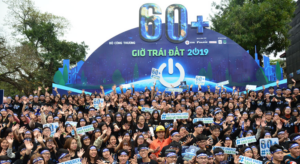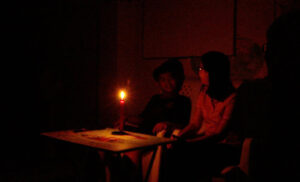The country's biggest commercial hub is being flooded with a mountain of rubbish that is becoming increasingly costly to treat. Each day, 6,000 tonnes of household waste are produced in HCM City, and the amount is expected to rise by 10 per cent annually for the foreseeable future, city officials have said.
All of the city's waste is handled at the Phuoc Hiep dump in Cu Chi district and the Da Phuoc solid waste treatment complex in Binh Chanh district.
Two other waste sites, one in Binh Tan district and another in Hoc Mon district, were closed last year after reaching full capacity.
Dao Anh Kiet, acting director of the city's Department of Natural Resources and Environment, said the waste treatment fee is US$20 per tonne at the Phuoc Hiep dump, resulting in a daily cost of $60,000.
The fee at the Da Phuoc solid waste treatment complex is $16.4 per tonne.
Kiet said the fees were especially burdensome because of the economic downturn.
Gov't response
With the rapid economic growth of recent years, the city government encouraged private investors to pour money into environmental and sanitation projects.
As a response, the Viet Nam Waste Solution Company was created, said Dr Nguyen Trung Viet, head of the Management of Solid Waste Division of the HCM City's Department of Natural Resources and Environment.
The company invested more than $90 million in the Da Phuoc solid waste treatment complex, which covers an area of 128ha.
It has a treatment capacity of 3,100 tonnes a day, half of the city's daily waste production. The lifespan of its treatment technologies is 21 years.
Ten other companies have invested in waste treatment facilities in the city, including the Tam Sinh Nghia Investment-Development and Vietstar.
The facilities, a few of which are under construction, will be equipped with new technology that will help cut the treatment fees paid by the city government.
The plants are expected to begin operating in 2010.
The new technology will also recycle the waste into useful products, such as composted fertiliser, and reduce the rate of unprocessed waste.
Methane gas, a greenhouse gas harmful to the environment and emitted by waste, will be used to generate electricity.
















